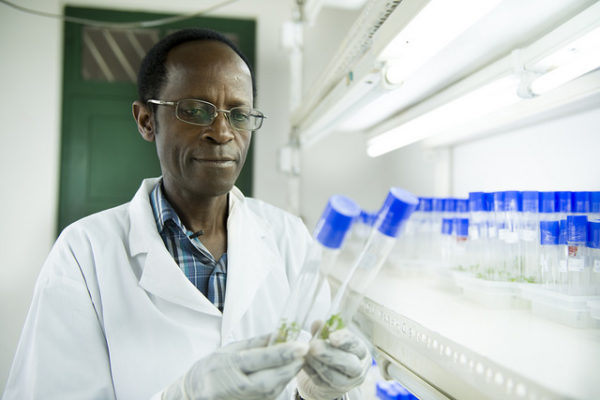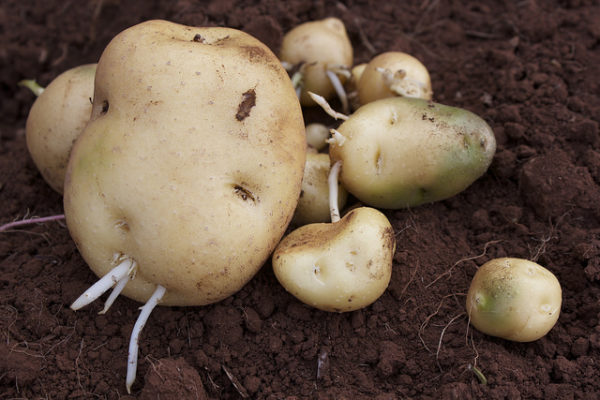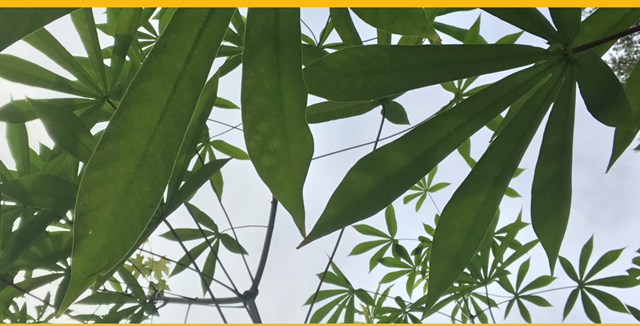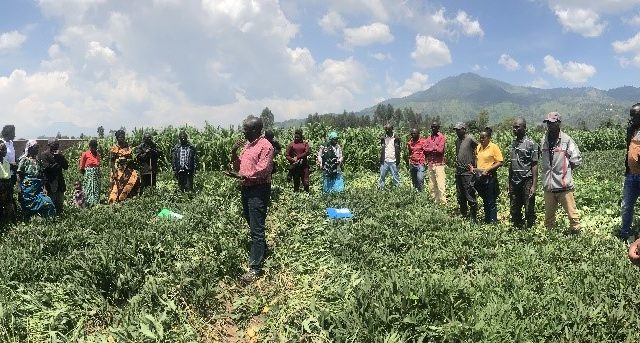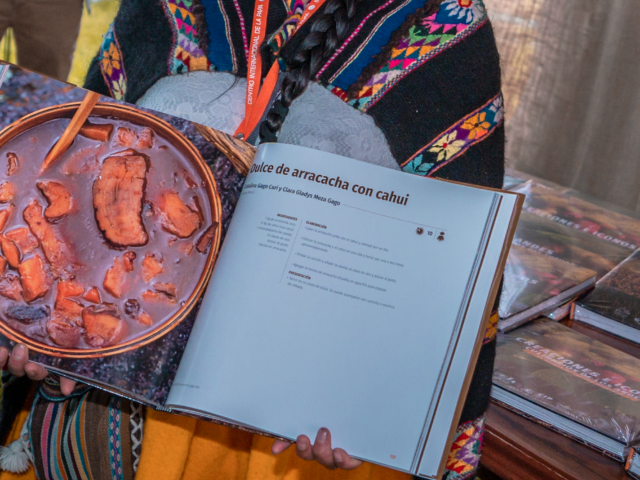Flagship project 2 (FP2) aims to make available good-quality planting materials of a diverse set of high-yielding RTB varieties that are adapted to the needs and preferences of different stakeholders in the value chain.
RTB crops represent a diverse group of clonal crops that face similar challenges of persistent low yields per unit area and high costs of production that limit their success in achieving food security for many of the world’s poorest inhabitants, especially women and children. Where high-yielding varieties exist, their adoption is often hampered because they do not fully respond to end users’ needs and preferences. Poor-quality planting material further lowers productivity of RTB crop production systems.
FP2 responds to the following grand challenges as identified in the CGIAR Strategy and Results Framework:
Producing sufficient nutritious food
More than 800 million people worldwide remain acutely or chronically undernourished, and the number suffering from micronutrient deficiency is even greater. Additional pressure on RTB agri-food systems to meet food needs is caused by an increasing population, continuing soil degradation, and climate change. FP2 exploits the existing diversity of RTB crops and deploys new varieties with good and stable agronomic traits, resistance to destructive pests and diseases, and end user-preferred traits. Male and female farmers benefit from improved crop varieties that better fit their needs and preferences, taking into account local agro-ecological conditions and the socioeconomic context. Populations who depend on RTB crops also benefit from nutrient- and micronutrient-dense RTB varieties to improve food security and nutrition as well as market access to increase income.
Climate change and risk of biodiversity loss
Climate change is expected to severely affect agricultural production, increasing constraints of water and temperature. This will be especially severe in those areas where RTB crops are a significant source of food security. Genetic diversity will be threatened by changing environments, reduced ecosystem stability, and increased pressures on land use. Climate-smart varieties include traits for resistance to emerging pests and diseases as well as tolerance to drought, heat, salinity, and extreme weather events linked to climate change. Other climate-smart technologies include seed systems to preserve planting material during dry spells and extreme weather conditions, and to protect cultivar diversity for farming communities.
Soil degradation
Low productivity often drives the expansion of the frontier of cultivation onto marginal lands prone to soil degradation. The cultivation of quality seed of more productive RTB varieties should improve efficiency in the use of external inputs, increase land and water productivity, and thus contribute to reducing pressure on expanding the frontier of cultivation.
Post-harvest losses and value-addition opportunities
RTB crops are perishable and prone to post-harvest loss. Expanding urban populations will mean reconfigured supply chains to meet the need for more convenient and storable RTB-based foods. Varieties are developed that store longer in ground or post-harvest, retain nutritional quality longer after harvest, and provide novel and income-generating processing opportunities. Women are heavily involved in post-harvest processing and storage of RTB crops, yet their needs are often not sufficiently considered or targeted by capacity development initiatives to promote good post-harvest practices. FP2 ensures that both men and women farmers, processors, and traders are actively engaged and involved in evaluating improved varieties for post-harvest processing and storage.
New entrepreneurial and job opportunities
FP2 opens up new opportunities for employment and income generation through the profitable sale of diverse, locally available, high-quality root, tuber and banana seed. To leverage these opportunities the flagship works closely with the gender and youth cluster in Flagship Project 5. In addition, varieties with higher processing quality enable producers to link with a wide range of processors, from industrial to small scale, which can create additional employment opportunities. Through a demand-driven process, RTB collaborates with a broad range of partners to achieve equitable access to varieties and seed and related information as well as business opportunities.
Clusters
FP2 is made up of seven clusters:
| Cluster | Aim |
| CC2.1: Access to quality seed/ varieties | Learn from and support other clusters across all crops to improve the economic sustainability of RTB seed systems in providing quality seed of demanded varieties |
| BA2.2: User- preferred banana cultivars/hybrids | Make available high-yielding cultivars/ hybrids that better fit demands and are adapted to target environments and populations |
| CA2.3: Added- value cassava varieties | Produce cassava varieties and production packages to meet the needs of regionally diverse markets and production constraints in Africa, Asia, and Latin America |
| PO2.4: Seed Potato for Africa | Establish functional seed system to improve health status of planting material and to disseminate advanced newly developed varieties and existing market demanded varieties |
| PO2.5: Agile potato for Asia | Provide alternatives for sustainably intensifying, diversifying, and increasing productivity and quality value of potato food systems, many of which are cereal based |
| SW2.6: User- preferred sweetpotato varieties | Investigate, develop, and disseminate better sweetpotato varieties and ensure that they meet farmer and consumer preferences |
| YA 2.7: Quality seed yam | Develop and deploy improved varieties with enhanced pest and disease resistance, adapted to competitive cropping systems, with viable seed and ware yam value chains |
